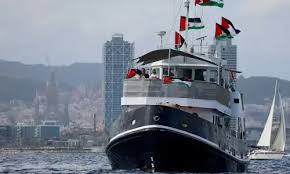Green Line BRT: 80 China-made buses start serving Karachi residents

China Economic Net
Karachi: Eighty China-made buses have launched a new service for the Karachi residents under the Green Line Bus Rapid Transport (BRT) project.
The 80 fuel efficient and environment friendly buses, imported from China, started picking commuters early in the morning and ended the first day at 10 pm local time. The trial service was started last month and the administration had pledged to launch the full-fledged service on January 10.
The 80 buses will cover a track of 21 kilometers from 6 in the morning till 10 at night. Twenty-two bus stations have also been completed.
The administration of the project announced that a bus will arrive at the station after every three minutes. The door of the bus will remain open for the passengers for 20 seconds at every station, the administration added.
The bus service starts from Karachi Electric Supply Company (KESC) Powerhouse Chowrangi in Surjani Town and terminate at Municipal park after passing through Nagan Chowrangi, North Nazimabad, Nazimabad and Gurumandir, with 25 stations along its route. The bus service will cater to 300,000 passengers on a daily basis.
Around 22 stations between Surjani Town and Numaish Chowrangi have been completed. Another three stations to extend the service to Municipal Park are yet to be constructed.
The government has yet to announce the ticket prices for the Green Line BRT project. However, according to experts, the government will set Rs 15 minimum and Rs 55 maximum prices for bus service.
Karachi’s Green Line BRT project with intersections is 22 kilomegres (km) long which includes 12.7 km elevated, 10.9 km at grade, and 422 meters underground, and has 25 stations.
The phase-II common corridor from Gurumandir up to Municipal Park with a length of 2.5 km has two underpasses at M.A Jinnah Road.
The state-of-art underground bus terminal with a parking facility and the commercial mezzanine floor was also constructed at Numaish intersection. The construction work on Phase-I of the project was started in 2016.





